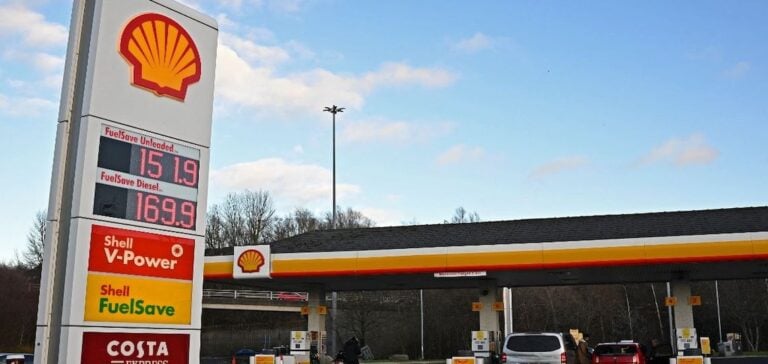British oil giant Shell reported a sharp fall in second-quarter profits on Thursday, weighed down by lower natural gas sales and lower hydrocarbon prices.
Net profit, group share, came to 3.1 billion dollars, down 64% on the 8.7 billion recorded in the first quarter, and more than 80% year-on-year, Shell said in a statement.
Shell posted “a solid performance (…) despite an environment of declining commodity prices”, commented CEO Wael Sawan, announcing a $3 billion share buyback program.
Excluding exceptional items, adjusted quarterly net profit, the market benchmark, came to $5.1 billion, halved year-on-year. In June, the oil giant reneged on its commitment to reduce crude production by 1 to 2% a year, and is now forecasting “stable” production until 2030.
These announcements were accompanied by a further redistribution of cash to shareholders, and drew the ire of environmentalists. Shell insisted that the company has actually achieved its 2030 oil production reduction targets faster than expected, compared to the ambitions unveiled in 2021, and is further aiming for a small additional reduction by the end of the decade to “production levels 26% lower than they were in 2019”.
A Shell spokesman said in June that this objective had been achieved through asset disposals, notably of shale oil deposits in the USA, and the natural decline of oil fields.






















